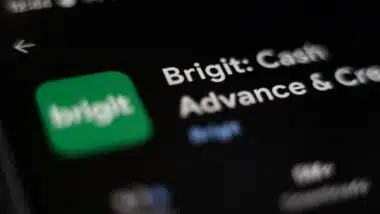
The California Invasion of Privacy Act provides strict guidelines regarding call recording, prioritizing the protection of its residents from people and businesses recording them without permission. California privacy laws are stricter than in most other states, and in fact, its privacy laws are included as part of its state constitution.
Compliance requires that callers alert all parties on the phone to any call recording that may take place. Without this warning, privacy rights guaranteed by the California Invasion of Privacy Act have been violated.
CIPA Compliance
CIPA compliance is relatively simple. In fact, all it really requires is a warning at the outset to alert all parties that the recording is taking place. California requires that all parties be warned about the recording, which is considered a “two-party consent” law. Many states have only one-party consent law, requiring that only one party involved in the conversation be aware of the recording, which could be the recorder themselves.
We’ve probably all heard a warning on a phone call with a company that tells us “This call may be recorded for quality assurance,” or something along those lines. This warning is the company’s CIPA compliance—making sure that everyone on the line is aware of any recording that may be taking place.
There are many legitimate reasons a call might be recorded and companies often explain in the warning itself. It may be for quality assurance, training, or other reasons. Call recording is not an illegal practice, as long as the people being recorded know about it and consent to it. In this situation, giving consent for the recording is implied by staying on the line, while simply hanging up is enough to deny consent.
In addition to traditional phone calls, video calls are also covered by CIPA compliance laws. Due to the coronavirus outbreak, use of Zoom and other video call programs has skyrocketed, making it important for users to know the legality of recording video conversations.
While some video chat users may be tempted to record these calls in order to have a record of the conversation, review school lectures, or ensure that they remember all the details that were covered in a work meeting, it is important to notify the other parties on the call that the video is being recorded and saved. Otherwise, the recording may be in violation of CIPA.
Other technologies, including Google’s Assistant app and Apple’s Siri have also been cited for CIPA non-compliance. Although for many people, using these apps or assistants may be second nature, if these devices record conversations they may be against the law.
However, there are some exceptions to California call recording laws. According to a ruling made by the California Supreme Court in December 2019, although these recordings are illegal, they may be admitted as evidence in criminal trials. People who believe they can obtain evidence of a serious crime by secretly recording a call may be able to do so. Additionally, nanny cams and security cameras inside of homes are generally not in violation of the law, unless the microphones are sensitive enough to pick up conversations taking place outside the home.
Consequences of Breaking California Recording Laws
 If people or companies do not prioritize CIPA compliance, there are monetary consequences of $5,000 per violation. While this was added as a modification to the California Penal Code, effective January of 2017, it has been considered by at least one federal court to be a clarification rather than an amendment, so that illegally recorded phone calls predating January 2017 can still be penalized for $5,000 in statutory damages.
If people or companies do not prioritize CIPA compliance, there are monetary consequences of $5,000 per violation. While this was added as a modification to the California Penal Code, effective January of 2017, it has been considered by at least one federal court to be a clarification rather than an amendment, so that illegally recorded phone calls predating January 2017 can still be penalized for $5,000 in statutory damages.
Call Recording Company Sued
Securus Technologies Inc. recently agreed to a proposed class action settlement regarding allegations the company illegally recorded calls between California correctional facilities detainees and their lawyers.
The class will receive injunctive relief, but the named plaintiffs will receive a monetary award, according to the paperwork filed with the U.S. District Court for the Southern District of California, according to an article in Bloomberg Law.
Three named plaintiffs will receive service awards of $20,000 each. Securus also will pay up to $840,000 in attorneys’ fees and costs.
The class action lawsuit was filed in 2016 by plaintiffs who accused Securus of violating the CIPA Compliance Act and the California Business and Professions Code when the company recorded calls made between attorneys and the inmates they represented.
The proposed settlement includes Securus agreeing to several changes in the way it does business within the California correctional facilities. Securus will set up a private call option when inmates dial approved numbers that will be made free of charge and will not be subject to recording. Securus also agreed to make available to current and future California customers a message prompt that advises them that calls to non-approved numbers may be monitored and recorded. The company also will add instructions on its website explaining how a telephone number can become an approved number.
Judge Jeffrey T. Miller granted preliminary approval to the class action settlement on June 6.
The CIPA Compliance Lawsuit is Juan Romero, et al. v. Securus Technologies, Inc., Case No. 16-cv-1283 JM (MDD) in the U.S. District Court for the Southern District of California.
Filing a CIPA Compliance Lawsuit
A number of companies are currently under investigation for potentially violating call recording rules included in the California Invasion of Privacy Act, including:
- Dermalogica
- Swarovski
- Foster & Smith
- Mears Transportation Group
- Romano’s Macaroni Grill
- Southwest Rapid Rewards (800-445-5764 only)
- United Airlines Pet Safe (800-575-3335 only)
- Cannondale Bicycle Corporation
- Czech Airlines
If you live in California and were not warned about a phone call recording after calling or being called by a business, that call may have been recorded in violation of California law, which may entitle you to compensation. Pursuing litigation over phone recording laws can not only provide financial compensation, but also help enforce these laws.
This class action lawsuit investigation applies specifically to California residents. However, the California law phone recording law does actually protect anyone who was in California when an illegal recording was made, and not just the state’s residents.
Join a Free California Call Recording Class Action Lawsuit Investigation
If you live in California and you did not receive a warning when calling a toll-free number, your call may have been recorded in violation of California law, and you may be entitled to compensation. See if you qualify to file a California call recording class action lawsuit.
ATTORNEY ADVERTISING
Top Class Actions is a Proud Member of the American Bar Association
LEGAL INFORMATION IS NOT LEGAL ADVICE
Top Class Actions Legal Statement
©2008 – 2026 Top Class Actions® LLC
Various Trademarks held by their respective owners
This website is not intended for viewing or usage by European Union citizens.
Get Help – It’s Free
Join a Free California Call Recording Class Action Lawsuit Investigation
An attorney will contact you if you qualify to discuss the details of your potential case at no charge to you.
PLEASE NOTE: If you want to participate in this investigation, it is imperative that you reply to the law firm if they call or email you. Failing to do so may result in you not getting signed up as a client or getting you dropped as a client.
Email any problems with this form to [email protected].
Oops! We could not locate your form.













One thought on Call Recording: What’s Required for CIPA Compliance?